Huawei is fairly new to the laptop game and the MateBook 13 is perhaps just a 3rd-generation device but what it lacks in experience is not really evident once you start using the laptop.
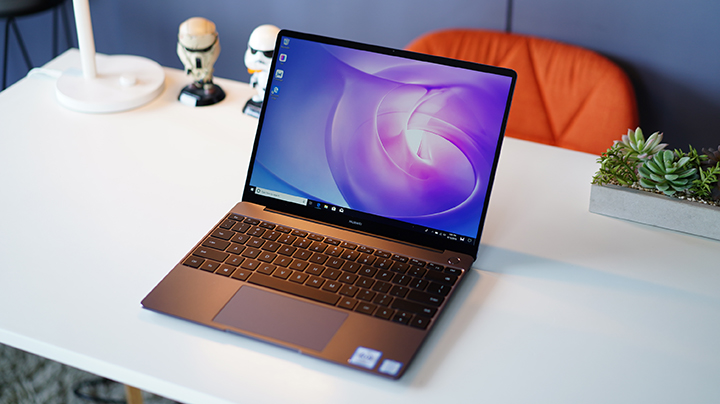
Sure, there is a lot of inspiration coming from the MacBook 12 or the MacBook Air, yet the MateBook 13 did not just copy it, it also improved upon it. It took what is great with Apple’s laptop and made it better.
Table of Contents
Design and Construction
For a 13-inch laptop, the MateBook 13 is very thin and light yet managed to pack it with great hardware. The design came from its predecessor, the MateBook X Pro. The space grey color variant that we have has a nice, matte finish that keeps fingerprints and smudges at a minimum. It feels solid and well-made with the unibody design.

The minimal design on the exterior is takes your eyes towards that that large, embossed Huawei logo at the back.
The laptop looks sexy, built entirely with a metal body, and despite the 13-inch display, it still has a very small footprint. Never mind that this silver grey color was outright borrowed from the Macbook. The Matebook is a lot of sense, a Macbook for Windows. There’s a lot of similarities here, not just with the design but also with some of the key features.
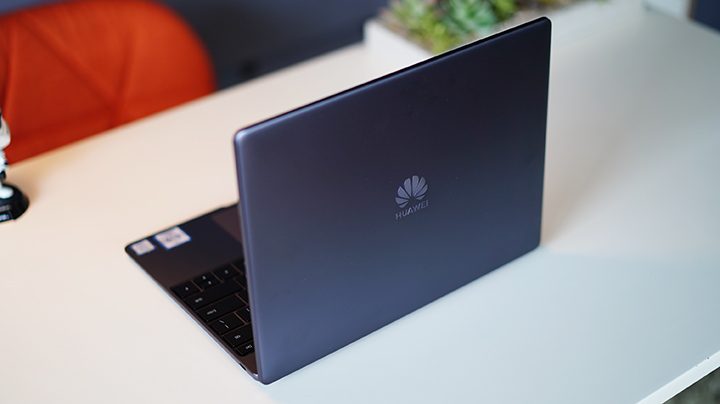
There’s no easy way to pry open the laptop from the back as it is neatly sealed off with small screws. Besides, we don’t think there’s any chance of having to upgrade some parts of it like the memory module or the SSD.

The two speaker grills that are found at the backside produce decent sound. There’s not a lot of bass but the audio is not muffled when placed in a flat surface. Not much can be said with the ports as well — just a couple of Type-C ports and a 3.5mm audio port.

The MateBook 13 is a sleek and powerful laptop. You can take it with you every day because of the small size and lightweight, yet it still offers enough power for heavy productivity work and a little bit of light gaming.
Display
The MateBook 13 has a 13-inch IPS display with 2160×1440 pixel resolution and a 3:2 aspect ratio. We don’t get to see a lot of laptop displays at 3:2 so this one gets a brownie point for bigger screen real estate.
This is ideal for productivity like spreadsheets or video editing. We liked using it while writing this review on the device itself. However, watching videos or movies with the standard 16:9 aspect ratio will result in a lot of dead space at the top and bottom end of the screen.

Also impressive to note are those slim bezels, giving it a bigger screen-to-body ratio. Unlike the Dell XPS 13, the webcam is still placed at the top end of the display so the orientation is at an eye-level.
The display is very sharp and bright though we’re not getting a touch-display for those who are curious. At least, the ones that are available in the Philippines.

While the display quality is pretty much spot on, we notice some uneven backlight bleeding, especially during boot-up. Nothing serious, really but just an observation. Outdoor visibility is decent but once you get under some bright sunlight, it can be harder.
Hardware and Performance
Our review unit runs on an Intel Core i7 processor 8565U Whiskey Lake with 4 cores and 8 threads.
The Intel Core i7-8565U which is an 8th-generation (Whiskey Lake) chip built on the 14nm process. It’s a quad-core processor with 8 threads, and has a base clock speed of 1.8GHz that goes up to 4.6GHz on Turbo Boost. The embedded GPU is an Intel UHD Graphics 620 which supports 4K display but it comes with an NVidia GeForce MX150 (with 2GB GDDR5 RAM) too if you need some extra juice.

While the CPU has an integrated Intel UHD Graphics 620, Huawei added an Nvidia GeForce MX150 GPU with 2GB GDDR5 RAM for added power for some moderate gaming and productivity.
There’s also 8GB of onboard RAM which is enough although we were hoping for an option to upgrade this to 16GB for those who needed it. There’s none though and everything is already pre-configured.
For storage, you get 512GB of fast SSD from Samsung which is also pre-partitioned for the boot drive (80GB) and the rest for data storage (381GB).
Performance is great with the Core i7 and MX150 combo — we see some pretty good results both in heavy productivity tools and light to moderate gaming. Don’t expect heavy gaming here compared to those dedicated gaming laptops but the Matebook 13 can still deliver. Here are some test scores we got with Geekbench.
Geekbench 4.3.3
Single-core: 3,606
Multi-core: 11,034
There’s a variant which comes with a Core i5, 8GB RAM and 256GB SSD should you wish to get a more affordable version of the Matebook 13.

Another noteworthy feature to mention is the touch fingerprint sensor that is baked into the power button. Yep, straight out of Apple’s Touch ID. We liked it in the Macbook Pro so there’s no reason not to like it on The Matebook either. Once you’ve configured this during the initial set-up, no need to input any more passwords when logging in. Very convenient indeed.
Now, let’s move on to that trackpad. It’s large and spacious with a plastic surface but it feels a bit porous or not as smooth as the one in the Macbook. There’s a huge difference between the two, really. We’ll need some more time to be able to get used to that texture. It’s pretty easy to use though, spacious and accurate.

Then, we have those chiclet-type keys of the keyboard. They’re soft and comfortable to use, has longer travel compared to the ones on the Macbook and with a clickety sound when you type which is oddly comforting and reassuring. In fact, we are using the Matebook 13 to write this review to get a good feel of it. Still needs some getting used to especially with the distance between the keys. They’re also back-lit although no way to change the intensity.
When we did some online typing test for the first time, we got a score of 54 WPM with 96% accuracy rate. A couple of weeks later, while finishing this review, we took the same test and got 62 WPM at 100% accuracy. Got a grade of “fluent” to “fast” after using the laptop for the past 2 weeks.
Software and Operating System
The Matebook 13 comes with Windows 10 Home pre-installed and a trial copy of Office 365.
There’s not much else that Huawei included here except for the Huawei PC Manager that analyzes and optimizes the laptop’s health and performance. It even came with a keyboard shortcut via the F10 function key but that’s about it.
The basic install was clean and did not come with any bloatware whatsoever. The only other extra we saw was the Realtek Audio Controller which you can use to configure the onboard sound.
Connectivity and Battery Life
With USB Type-C fast becoming the standard for wired connectivity, we were hoping to have more than just a couple of them on the Matebook 13. You only get two of them here with the one on the left dedicated for charging and the one on the right for data transfer. That means you will most probably be lugging along one of those dongles you often see Macbook users are carrying around.

For a long-time Macbook user like me, this wasn’t really an issue as all of the accessories/dongles I have are compatible with the Matebook 13.
There’s also the standard fast WiFi and Bluetooth for wireless connectivity then NFC for Huawei Share.
If you are a Huawei smartphone user, you will find the built-in Huawei Share to be a really useful feature. It makes transferring files from your Huawei phone to the Matebook 13 as simple as a single tap. It’s also quite fast – we managed to copy a 600MB episode of GoT in under a minute.
As for battery life, you will get somewhere in between 5 to 6 hours of usage when you set it in Battery Saving mode. We were hoping for somewhere around 7 to 8 hours but that’s not the case here.

Likewise, that number decreases once you set brightness levels and squeeze more performance from the laptop, which is understandable.
In this case, battery performance is somewhere in the average level. It will not last you an entire day so better not forget the charger or bring one of those high-voltage powerbanks that you can use to charge the laptop via the Type-C port. There’s quite a few of them out there and I think we even featured some of them in the site before (see here and here).
Conclusion
There’s no other way to say it but the Huawei Matebook 13 is pretty impressive. It’s simple and elegant, crisp display, great hardware and a mix of other goodies all packed in a thin and light profile. There’s not a lot of ultra portable laptops out there that offers a similar performance with this footprint. It’s like having a Macbook Pro’s performance in a body of a Macbook 12 running Windows.
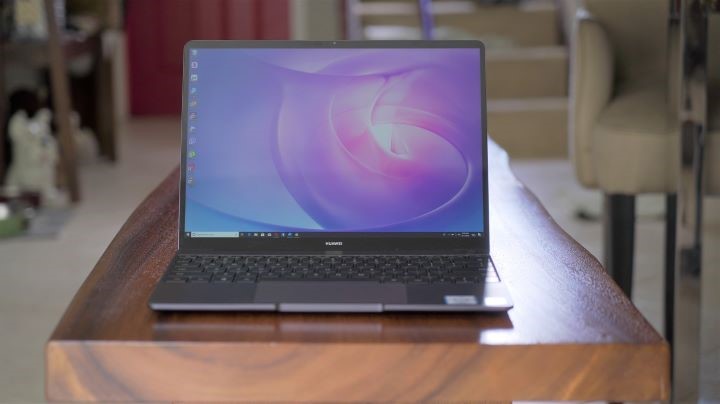
Sure, there are a lot of Macbook undertones and Huawei is not ashamed of that. They’re merely stating that they can do a better one and at a more affordable price. You would be paying 30% to 40% more for a similarly spec’ed Macbook (Php70k vs. Php103k). That’s real value for money there.
Huawei MateBook 13 specs:
13.3-inch IPS LCD @ 2160 x 1440 pixels @ 3:2 aspect ratio
Windows 10 Home
8th Gen Intel Core i7-8565U processor 1.8GHz/4.6GHz
8th Gen Intel Core i5-8265U processor
2GB NVIDIA GeForce MX150 GDDR5
8GB LPDDR3 2133MHz
256GB, 512GB SSD
Backlit chiclet keyboard
Touchpad
2-in-1 power button and touch fingerprint sensor
1MP web camera
Bluetooth 5.0, 4.1
WiFi 802.11a/c
USB-C charging port
2x USB-C data port
3.5mm audio/mic jack
2x Speaker
Dolby Atmos sound
41.8 Wh battery
286 x 211 x 14.9 mm (dimensions)
1.3kg (weight)
Space Grey, Mystic Silver
Huawei Philippines is offering the Matebook 13 in two configurations and should be available in local stores already:
Intel Core i5 / 8GB RAM / 256GB SSD – Php55,990
Intel Core i7 / 8GB RAM / 512GB SSD – Php69,990
What we liked about it:
- Very good hardware and performance
- Nice, crisp display
- Built-in fingerprint sensor
- Reasonably priced for its specs
What we did not like:
- Average battery life
- Needs additional Type-C ports







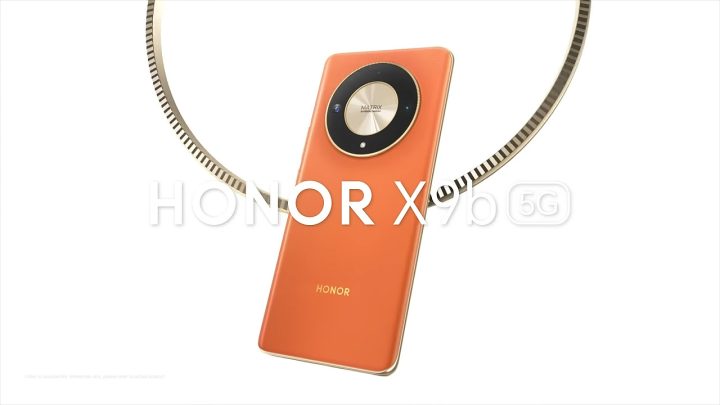
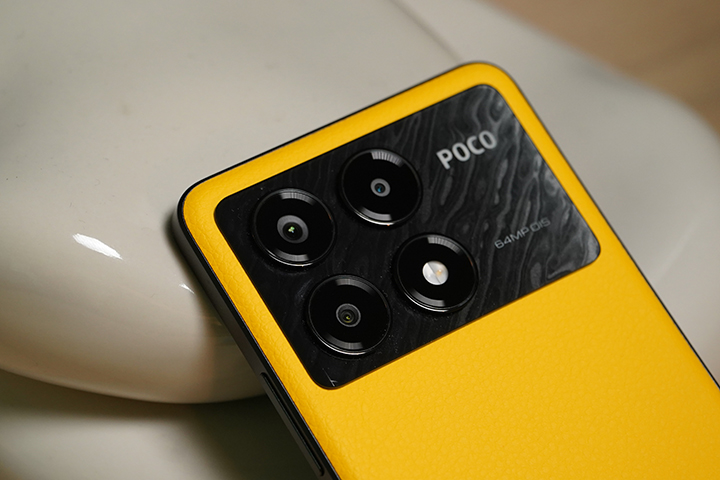



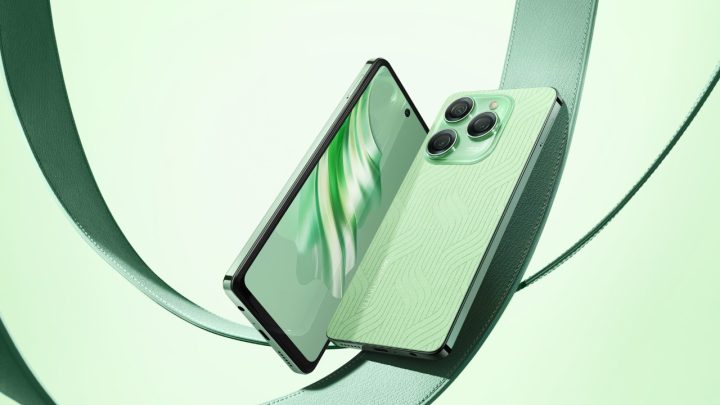
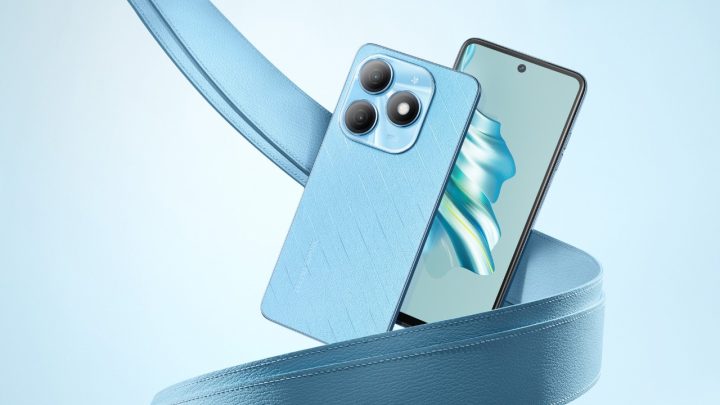

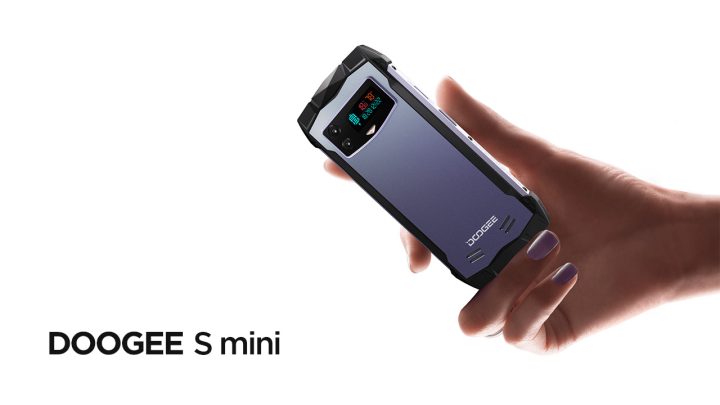













There’s quite a few of them out there and I think we even featured some of them in the site before (see here and here)
No links.